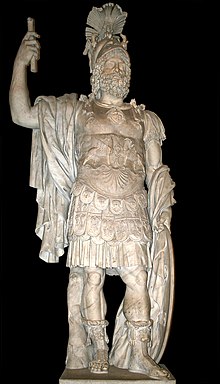남성성
남성 및 남자로의 특유의 문화나 성질
남성성(男性性)은 사회적 성을 다루는 사회학의 일부에 있는 젠더 정체성이다. 남성과 구별된다.

같이 보기
각주
- ↑ Kimmel, Michael S. (1994). 《Theorizing Masculinities》. Thousand Oaks: SAGE Publications, Inc. 119–141쪽.
- ↑ Vetterling-Braggin, Mary (1982). 〈Introduction〉. 《"Femininity", "masculinity", and "androgyny": a modern philosophical discussion》. Totowa, N.J: Littlefield, Adams. 6쪽. ISBN 9780822603993.
the [personality] theorist might classify a person as "masculine" if the person thought that person to have any or all of the following P-traits [personality traits] - GROUP Y TRAITS: strength of will, ambition, courage, independence, assertiveness, aggressiveness, ...
- ↑ Carli, Linda L. (2001). 〈Assertiveness〉. Worell, Judith. 《Encyclopedia of women and gender: sex similarities and differences and the impact of society on gender, Volume 1》. San Diego, California: Academic Press. 157–168쪽. ISBN 9780122272462.
- ↑ Thomas, R. Murray (2001), "Feminist perspectives", in Thomas, R. Murray (편집.). 《Recent theories of human development》. Thousand Oaks, California: Sage. 248쪽. ISBN 9780761922476.
Gender feminists also consider traditional feminine traits (gentleness, modesty, humility, sacrifice, supportiveness, empathy, compassion, tenderness, nurturance, intuitiveness, sensitivity, unselfishness) morally superior to the traditional masculine traits (courage, strong will, ambition, independence, assertiveness, initiative, rationality and emotional control).
| 이 글은 인간의 성에 관한 토막글입니다. 여러분의 지식으로 알차게 문서를 완성해 갑시다. |